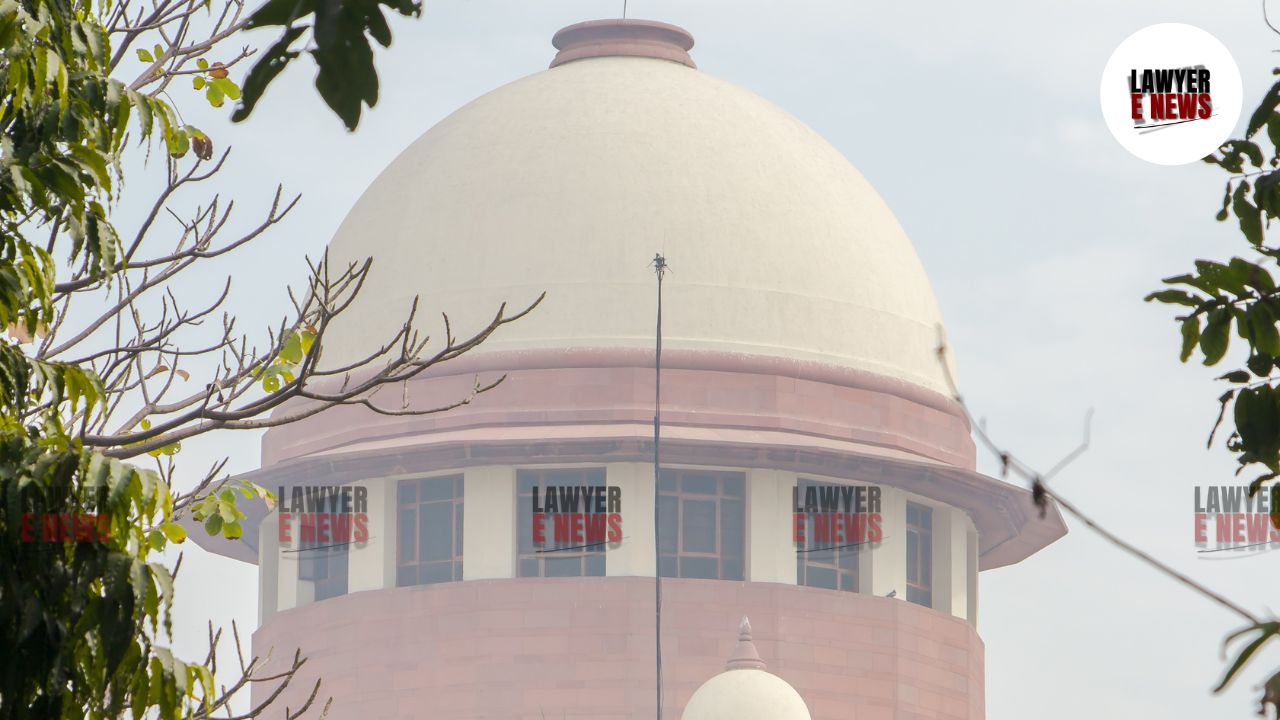-
by sayum
14 February 2026 2:22 PM



Candidates with Benchmark Disabilities Must Be Given Fair Representation Across Categories, Rules Supreme Court. On October 25, 2024, the Supreme Court of India, comprising Justices J.B. Pardiwala and Manoj Misra, issued a significant interim order in Tishan Jangid v. High Court of Judicature for Rajasthan & Anr., Writ Petition (Civil) Diary No. 49998/2024. The Court directed the Rajasthan High Court to allow the petitioner, Tishan Jangid, a candidate with 60% locomotor disability, to participate in the ongoing interview process for the Rajasthan Judicial Service Examinations, 2024. This order underlined the principle of horizontal reservation for Persons with Benchmark Disabilities (PWBDs), ensuring equal opportunities for such candidates within their respective categories.
Tishan Jangid, the petitioner, challenged the denial of a distinct cut-off for PWBDs in the main examination results for the Rajasthan Judicial Service Examinations, 2024. Despite securing qualifying marks, Jangid was excluded from the interview stage as he did not meet the general cut-off for his category. The petitioner argued that this exclusion violated his rights under Articles 14, 16, and 21 of the Constitution and the Rights of Persons with Disabilities Act, 2016.
Horizontal vs. Vertical Reservations: The Supreme Court reiterated that horizontal reservations, such as those for PWBDs, are distinct from vertical reservations and must be applied across all categories. Drawing from Indira Sawhney v. Union of India (1992), the Court stated:
"Horizontal reservations cut across vertical reservations, ensuring candidates are adjusted within their categories while retaining fair representation."
Violation of Constitutional Rights: The denial of a separate cut-off for PWBDs was deemed a violation of Articles 14 (Right to Equality), 16 (Equality of Opportunity in Public Employment), and 21 (Right to Life and Personal Liberty). The Court observed:
"The refusal to apply a distinct cut-off for candidates with benchmark disabilities undermines their right to equal opportunity and non-discrimination."
Interim Relief and Precedent: The Court drew parallels with an earlier order in Writ Petition (Civil) No. 710 of 2024, involving a blind candidate, where similar interim relief was granted. The bench directed:
"The petitioner shall be called for interview as part of the ongoing interview process and duly assessed by the Committee."
The Supreme Court allowed the petition in part, ordering the respondents to include Tishan Jangid in the interview process concluding on October 26, 2024. The respondents were also directed to submit a counter affidavit by November 1, 2024, and the matter was listed for further hearing on November 4, 2024.
This decision reinforced the necessity of implementing horizontal reservations for PWBDs to ensure their inclusion and fair assessment across all categories in public service examinations. It upheld the principles of equality and non-discrimination enshrined in the Constitution, aligning with legislative mandates for the rights of persons with disabilities.
Date of Decision: October 25, 2024
Tishan Jangid v. High Court of Judicature for Rajasthan & Anr.
